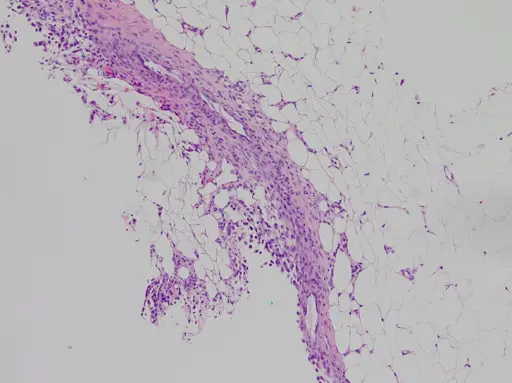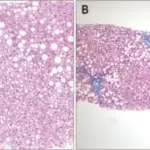Alpha-1-antitrypsin deficiency is a genetic disorder that may result in lung disease or liver disease.
What is the Pathology of Alpha-1-Antitrypsin Deficiency?
The pathology of alpha-1-antitrypsin deficiency is:
-Etiology: The cause of alpha-1-antitrypsin deficiency is changing (pathogenic variants, also known as mutations ) in the SERPINA1 gene.
-Genes involved: SERPINA1.
-Pathogenesis: The sequence of events that lead to alpha-1-antitrypsin deficiency includes a mutation in the SERPINA1 gene.
-Histology: The histology associated with alpha-1-antitrypsin deficiency shows periportal red hyaline globules with periodic acid-Schiff (PAS) stain.
How does Alpha-1-Antitrypsin Deficiency Present?
Patients with alpha-1-antitrypsin deficiency typically affect males and females present at an age range of 30-50 years old. The symptoms, features, and clinical findings associated with alpha-1-antitrypsin deficiency include Shortness of breath and wheezing, repeated lung infections, tiredness, rapid heartbeat upon standing, vision problems, and weight loss.
How is Alpha-1-Antitrypsin Deficiency Diagnosed?
Alpha-1-antitrypsin deficiency is diagnosed using blood tests and liver biopsy.
How is Alpha-1-Antitrypsin Deficiency Treated?
Alpha-1-antitrypsin deficiency is treated with bronchodilators, inhaled steroids, antibiotics, and intravenous infusions
What is the Prognosis of Alpha-1-Antitrypsin Deficiency?
The prognosis of alpha-1-antitrypsin deficiency is good with a normal life expectancy.



